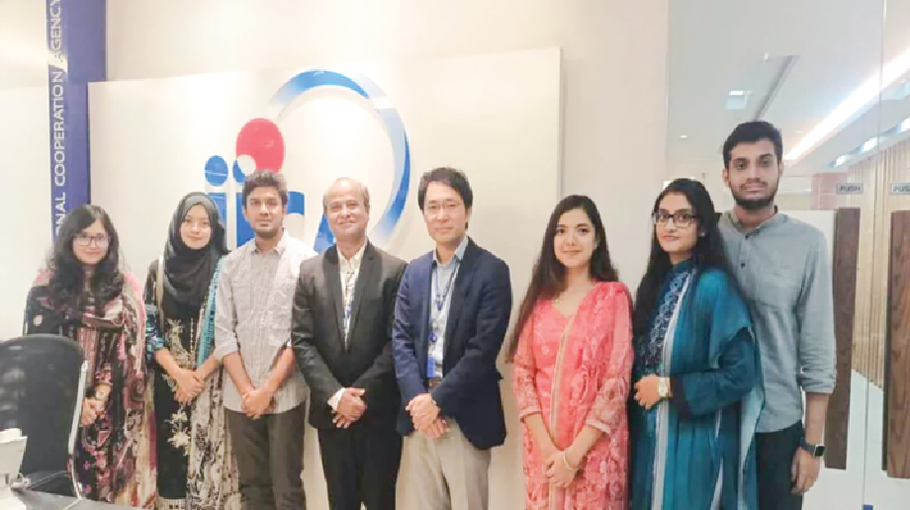NSU engages in air pollution control discussion at JICA Bangladesh

North South University’s Aerosol Research Lab team engaged in a highly productive discussion at the JICA head office in Dhaka.
In the discussion session, they shared insights on their efforts to combat air pollution, highlighting their shared commitment to address this critical issue in Bangladesh, says a press release issued on Wednesday.
During the meeting, Murakami Shin, a representative from JICA, introduced their collaborative efforts aimed at combating air pollution in Dhaka and Chittagong.
In the course of this interaction, they unanimously agreed on the crucial first step: collecting and analyzing accurate air quality data.
This dataset, including emission inventory and source apportionment, will quantify pollution contributions, laying the foundation for essential policies and solutions needed by the Bangladesh Government.
Dr Md Firoz Khan, associate professor at NSU's Department of Environmental Science and Management, presented key strategies for air purification.
He highlighted the significance of Bangladesh's 2022 Air Pollution (Control) Rules and stressed the need for strict controls over pollution hotspots.
Dr Firoz addressed the impact of relaxed air quality standards set by the Department of Environment (DoE) and advocated for adopting higher fuel quality standards like EURO 6 or 7.
He emphasized that effective air quality enforcement must align with realistic standards, as current guidelines surpass World Health Organization (WHO) standards from 2021.
Dr Firoz highlighted the importance of indoor air quality awareness campaigns, given the significant health challenges faced by Bangladeshis indoors.
In urban areas, Dr Firoz pointed out disparities in indoor architecture leading to high absenteeism in schools.
He called for enhancements in traditional indoor designs and safer cooking stoves in rural areas, emphasizing the dangers of using solid wood, cow dung, charcoal, and coal. Dr. Firoz expressed confidence that these demanding initiatives are crucial for preserving lives.
Additionally, JICA's headquarters in Japan has several initiatives for improving air quality in Bangladesh. They plan to provide support to the Department of Environment (DOE), which will carry out the initial air pollution monitoring and capacity building. Subsequently, policies will be formulated based on the collected data to regulate emissions, with a priority list identifying the most significant pollution sources.




